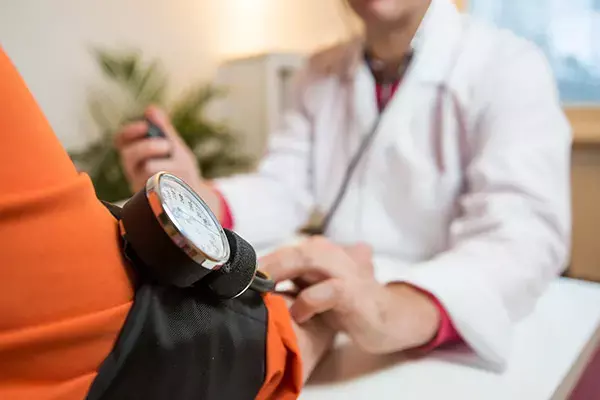- Home
- Medical news & Guidelines
- Anesthesiology
- Cardiology and CTVS
- Critical Care
- Dentistry
- Dermatology
- Diabetes and Endocrinology
- ENT
- Gastroenterology
- Medicine
- Nephrology
- Neurology
- Obstretics-Gynaecology
- Oncology
- Ophthalmology
- Orthopaedics
- Pediatrics-Neonatology
- Psychiatry
- Pulmonology
- Radiology
- Surgery
- Urology
- Laboratory Medicine
- Diet
- Nursing
- Paramedical
- Physiotherapy
- Health news
- Fact Check
- Bone Health Fact Check
- Brain Health Fact Check
- Cancer Related Fact Check
- Child Care Fact Check
- Dental and oral health fact check
- Diabetes and metabolic health fact check
- Diet and Nutrition Fact Check
- Eye and ENT Care Fact Check
- Fitness fact check
- Gut health fact check
- Heart health fact check
- Kidney health fact check
- Medical education fact check
- Men's health fact check
- Respiratory fact check
- Skin and hair care fact check
- Vaccine and Immunization fact check
- Women's health fact check
- AYUSH
- State News
- Andaman and Nicobar Islands
- Andhra Pradesh
- Arunachal Pradesh
- Assam
- Bihar
- Chandigarh
- Chattisgarh
- Dadra and Nagar Haveli
- Daman and Diu
- Delhi
- Goa
- Gujarat
- Haryana
- Himachal Pradesh
- Jammu & Kashmir
- Jharkhand
- Karnataka
- Kerala
- Ladakh
- Lakshadweep
- Madhya Pradesh
- Maharashtra
- Manipur
- Meghalaya
- Mizoram
- Nagaland
- Odisha
- Puducherry
- Punjab
- Rajasthan
- Sikkim
- Tamil Nadu
- Telangana
- Tripura
- Uttar Pradesh
- Uttrakhand
- West Bengal
- Medical Education
- Industry
Non-dipping and higher nocturnal BP tied to mortality risk in type 1 diabetes: Study

Denmark: Non-dipping of nocturnal blood pressure increases the risk of mortality and kidney disease in patients with type 1 diabetes, researchers find in a new study published in the Journal of Diabetes and its Complications. Also, higher nocturnal blood pressure was found to increase the risk of kidney disease and mortality.
Type 1 diabetes patients are known to be at increased risk of kidney and cardiovascular (CV) disease. Diurnal variations in BP can be examined using 24-hour ambulatory blood pressure (BP) measurement (ABPM). Henrik Ø. Hjortkjær, Steno Diabetes Center Copenhagen, Herlev, Denmark, and colleagues, therefore, aimed to find out the prognostic significance of the blunted decrease in nocturnal systolic BP of <10 % (non-dipping of nocturnal BP) for CV- and kidney disease and all-cause mortality in type 1 diabetes.
The study included 654 participants with type 1 diabetes who had 24-hour ABPM obtained with a tonometric wrist-watch device (BPro, HealthStats, Singapore) from 2009 to 2011. The researchers registered the following outcomes in 2017: (composite CV endpoint; all-cause mortality; decline in estimated glomerular filtration rate (eGFR) ≥30 %; end-stage kidney disease (ESKD); and a composite kidney endpoint including a decline in eGFR ≥30 %, ESKD and all-cause mortality).
The study revealed the following findings:
- Participants were mean ± SD 55 ± 13 years old and had median of 35 years of diabetes duration.
- Mean daytime and nocturnal systolic BP were 133 ± 16 and 121 ± 16 mmHg while 52 % of participants demonstrated non-dipping.
- After CV risk factor adjustments, non-dipping was associated with all-cause mortality (HR 2.12) and the composite kidney endpoint (HR 1.92).
"In type 1 diabetes non-dipping entailed an increased risk of all-cause mortality and kidney disease," the researchers wrote in their study. "These results are significant even after adjustments for classical cardiovascular risk factors."
To conclude, non-dipping of nocturnal systolic BP may have a prognostic value in patients with type 1 diabetes.
Reference:
Non-dipping and higher nocturnal blood pressure are associated with risk of mortality and development of kidney disease in type 1 diabetes. J Diabetes Complicat 2022 Jul 29;[EPub Ahead of Print], HØ Hjortkjær, F Persson, S Theilade, SA Winther, N Tofte, TS Ahluwalia, P Rossing
Dr Kamal Kant Kohli-MBBS, DTCD- a chest specialist with more than 30 years of practice and a flair for writing clinical articles, Dr Kamal Kant Kohli joined Medical Dialogues as a Chief Editor of Medical News. Besides writing articles, as an editor, he proofreads and verifies all the medical content published on Medical Dialogues including those coming from journals, studies,medical conferences,guidelines etc. Email: drkohli@medicaldialogues.in. Contact no. 011-43720751


